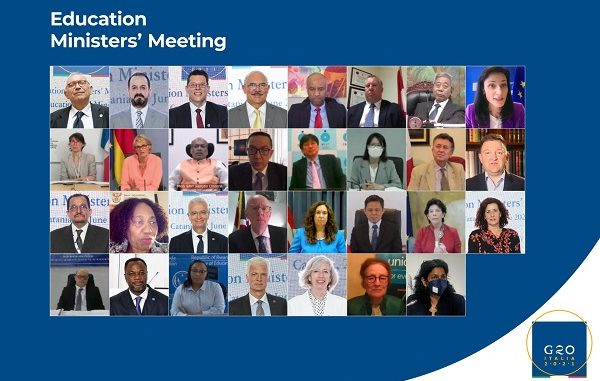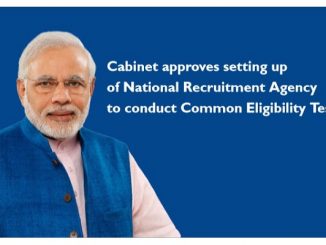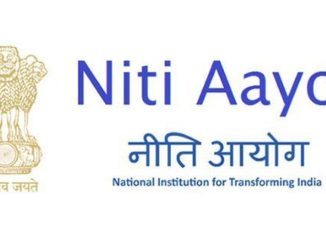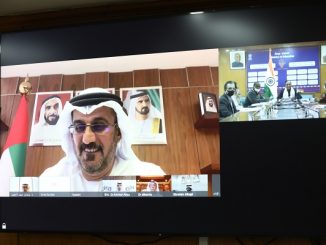
Jun 23: The Minister of State for Education Shri Sanjay Dhotre participated in the G20 Education Ministers’ Meeting on 22nd June, 2021. The meeting was hosted in blended mode by Italy. G20 Education Ministers exchanged views on how to progress on the fight against educational poverty and inequalities, especially in context of the Covid 19 pandemic. The ministers also resolved to share innovative experiences implemented during the pandemic to ensure the continuity and quality of learning pathways through blended education
Representing India, Shri Sanjay Dhotre reiterated the country’s commitment towards reducing and eventually eliminating educational poverty, inequalities and early school leaving. Speaking on National Education Policy, 2020, the Minister said it envisages equitable and inclusive education for all, withspecial focus on children and youth, especially girls, from socially and economically disadvantaged groups who are more at risk of being left behind.
Shri Dhotre said that the Indian education system has made steady progress towards bridging gender and social category gaps in all levels of education through multiple interventions. Some of these include increasing intake capacity of schools; tracking out-of-school children; monitoring the learning outcomes of vulnerable students; ensuring physical safety & zero tolerance to breach of child rights; mid-day meals to ensure health of children; enabling mechanisms for Children With Special Needs ; promoting multiple pathways to learning and strengthening open and distance learning programmes.
Regarding ensuring educational continuity during the pandemic, the Minister shared that India has promoted blended learning extensively. Digital educational content has been made available on various e-learning platforms like DIKSHA, SWAYAM and several others which can be accessed by Anyone, Anytime, and Anywhere free of cost. Permissible online component in conventional education has been increased from 20% to 40%. Over 100 top ranked universities have been allowed to introduce full-fledged online education programmes. In order to address the digital divide, India has been making extensive use of the SWAYAM PRABHA TV channels and the Community Radio. The Digital infrastructure is being expanded rapidly. A National Education Technology Forum is being set up under NEP 2020 to aid technology led education.
The Government also took special care to address mental health issues of students through counseling programmes like Manodarpan and others, he highlighted.
Shri Dhotre said that India reaffirms its support to the collective efforts of the G-20 countries to reduce educational poverty, inequalities and early school leaving. India also supports the collective efforts of G20 countries to further improve and strengthen blended learning initiatives on the basis of the lessons learnt during the pandemic to ensure education continuity.
The Education Ministers adopted a declaration at the end of the meeting
Later in the day, a Joint Meeting of Ministers of Education and Ministers of Labour and Employment was also held virtually. G20 Ministers exchanged views on transitions from school to work. Shri Sanjay Dhotre represented Ministry of Education in the meeting. Ministry of labour & employment was represented by MoS (I/C) Shri Santosh Gangwar.
Addressing the participants, Shri Dhotre said that it is essential that we, the member countries of G20, recognize the need to equip our youth well for a smooth transition into the work space after completing their education. This is especially important for learners from socially and economically disadvantaged population groups, who are more at risk of being left behind.
The Minister stated that India is committed to helping its youth develop the knowledge, skills and attitudes necessary for the 21st century global work space. Our approach has been to integrate vocational education with general academic education, with focus on demand driven, competency based, and modular vocational courses, he added.
The Minister highlighted that National Education Policy 2020 provides for early vocational exposure in middle and secondary school and its smooth integration into mainstream education. It aims that by 2025, at least 50% of learners in the school and higher education system would have exposure to vocational education. He further said that the NEP 2020 also provides for vocational education to be aligned to skill gap analysis and mapping of local opportunities. Vertical mobility for students from the vocational stream is being ensured through a National Skills Qualifications Framework. Standards under this framework will be aligned with the International Standard Classification of Occupations maintained by the International Labour Organization”. This Framework will be the basis for Recognition of Prior Learning, and reintegration of dropouts from the formal system, he added.
Shri Dhotre informed that India is also enhancing post education apprenticeship opportunities for youth by realigning the existing scheme of National Apprenticeship Training Scheme.
He said that India attaches great importance to the collaboration between G20 countries in the field of vocational education and training. He reaffirmed the support of the Government of India to the collective efforts of the G-20 countries to develop strategies to ensure smooth transition from education to work.
G20 Education and Labour and Employment Ministers’ adopted a Declaration at the end of the meeting.
Disclaimer: We donot claim that the images used as part of the news published are always owned by us. From time to time, we use images sourced as part of news or any related images or representations. Kindly take a look at our image usage policy on how we select the image that are used as part of the news.


